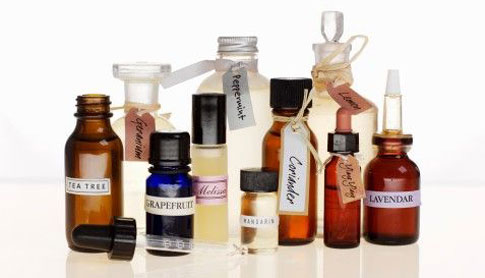Do the swarms of summer mosquitoes have you down? Would you be going camping or hiking if it wasn’t for the fact that the bugs just love to gnaw at your flesh? Well, in a perfect world, these little predators would just leave if you politely asked them, but out in the wilderness you are going to have to fight the good fight and declare war. You’re going to have to find some kind of repellent that will turn them off and make them fly towards your friends instead.
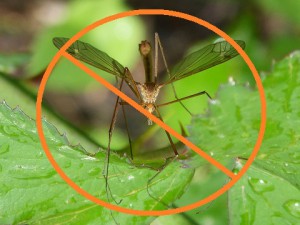 First, though, let’s take a moment to discuss how insect repellent works. Most repellents, natural or not, work not by actually putting the little guy off, but by disguising your tasty human smell. Bugs are simple creatures, and they find you by noticing the carbon dioxide that you give off, among other chemical markers of your presence.
First, though, let’s take a moment to discuss how insect repellent works. Most repellents, natural or not, work not by actually putting the little guy off, but by disguising your tasty human smell. Bugs are simple creatures, and they find you by noticing the carbon dioxide that you give off, among other chemical markers of your presence.
By covering up the smell of these natural chemicals, bug repellent will make it hard or impossible for most insects to find you in the first place. Every once it awhile, one of them will get lucky and land on you, but for the most part, you’ll be safe.
The repellent DEET works this way, by interfering with an insect’s natural detection system, and it actually does a decent job. It is a main ingredient in many commercial repellents, such as OFF! brand insect repellent.
However, a lot of people are concerned about whether DEET is healthy or not. It can be an irritant to some degree, especially in high concentrations, and coming into contact with it can cause rashes or other skin problems for some people. Though it is not very toxic, relatively speaking, many people would rather be safe than sorry, and so they turn to other alternatives such as essential oils.
Like DEET, essential oils work by attempting to render you invisible to biting insects like mosquitoes. The strong scent that the oils give off is intended to neutralize the bug’s “radar” and make it hard for them to pick you out among the environment. Not every essential oil is created equal when it comes to bug repellent, though. Let’s take a look at a few of the major oils that are effective in this and come up with some essential oil mosquito repellent recipes:
Tea Tree Oil Mosquito Repellent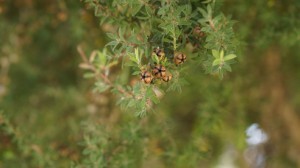
Tea tree oil is one of the best that you can use for mosquito repellent. Not only does it smell pretty good to a human nose, but it is unlikely to irritate your skin, so long as you use it in the right concentrations.
When putting together natural essential oil bug repellent, you have a few choices: You can simply produce it the same way that you make your beard oil, and then rub it on your skin; or you can go the more convenient route and opt for a spray. To make a spray bottle of the stuff, combine sanitized (boiled, and then cooled) water, witch hazel, and some drops of tea tree oil for best results. So here’s your first essential oil mosquito repellent recipe:
Ingredients:
- 2 oz of water
- 1 oz of witch hazel
- 50 drops of tea tree essential oil
You can put this together in just a few minutes and it should help keep the bugs away for awhile.
Citronella Essential Oil Mosquito Repellent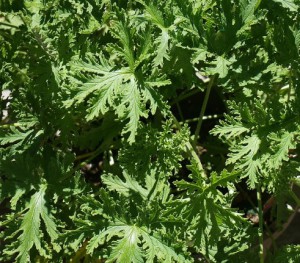
You’re probably familiar with the burning of citronella candles to ward away mosquitoes, but did you know that you can also wear it to keep them off? Follow the same procedure that you did with tea tree oil, and add 50 drips of citronella essential oil to a mixture of water and witch hazel to make this natural bug repellent.
Ingredients:
- 2 oz of water
- 1 oz of witch hazel
- 50 drops of citronella essential oi
In addition to being a repellent for bugs, citronella has a few other tricks up its sleeve. It has antiseptic and antibacterial properties, so you can use it to keep away some of the microscopic bugs as well. It also smells nice and makes for a decent deodorant when you’re out in the woods sweating up a storm.
Lavender Essential Oil Mosquito Repellent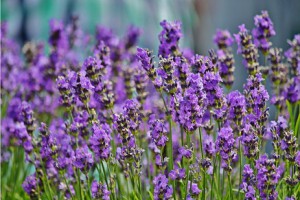
You might already know that lavender makes your laundry smell extra good, and that it makes for a good oil to use on your beard, but you can also use this great essential oil to keep the bugs away. For an added bonus, lavender has been considered for a long time to have value in aroma therapy; it can calm you down if you’re tense—so even if it doesn’t work on the bugs, at least you won’t be stressed out about it.
In addition, some people use it as a topical anti-inflammatory for bug bites and stings, so if something ends up giving you a chomp, having the lavender on hand can help with that.
As before, mix water and witch hazel together at a 2:1 ratio, then add the requisite amount of lavender—50 drops for every 3 ounces of the water / witch hazel mix.
Ingredients:
- 2 oz of water
- 1 oz of witch hazel
- 50 drops of lavender essential oi
These are just three of the best essential oils to use as insect repellents, but there are truly a lot more. These include: cedar, rosemary, peppermint, pine, and various citrus oils that you may already be using to make your own body care products or household products.
Most essential oils also have a few other neat properties, such as being antiseptic and discouraging the growth of fungus, which is always great to have when you’re outside trying to endure a long summer. Incorporating essential oils into your home-made perfumes and into your beard oil can be a convenient way to keep the bugs away, but a more thorough strategy is probably to try the spray bottle approach that is mentioned above, along with the corresponding mosquito repellent recipes.
Now, the big question is: Are essential oils effective against bugs? Yes, probably. In fact, a few studies have been done that suggest this is true. Essential oils come from plants, and often the compounds that cause the insects to be deterred are the same that protect the plant from being accosted by those insects. You could say that you are borrowing the plant’s skin for awhile when you use them.

